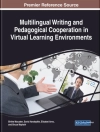From interactive, real-time Internet broadcasts to video game-like images of smart bombs on television, our perception of reality is shaped by the mass media. Willing or not, we are a mass mediated society, and the electronic media, especially television and computer-mediated-communication, plays a vital role in our daily lives.
Communicating Unreality reviews the images and meanings of our mass-mediated world. With careful attention to the integration of news and entertainment, fact and fiction, and event and story, author Gabriel Weimann examines our symbolic environment, where reality and fiction are almost inseparable. Through discussion of mass-mediated images of people, cultures, war, love, sex, death, community, and identity, we learn that there often exists a large gap between reality and reconstruction of ‘realities’ as communicated by the mass media. This comprehensive and entertaining textbook can breathe life into the standard mass communication course. Students, professors, and everyone interested in the influence of the media will enjoy this book.
قائمة المحتويات
Preface
PART ONE: THE RECONSTRUCTION OF REALITY
Living in a Mediated World
The Debate Over Media Effects
Cultivation and Mainstreaming
The Psychology of Cultivation
PART TWO: MEDIATED REALITIES
The Mean and Scary World
Sex and Sexuality
Death and Suicide
The World According to MTV
Portrayal of Groups
Images of America
The Unreal War
PART THREE: CONCLUSIONS
Virtual Reality:
Virtual or Real?
Communicating Unreality
عن المؤلف
Gabriel Weimann is a Full Professor of Communication at the Department of Communication at Haifa University, Israel. His research interests include the study of media effects, political campaigns, persuasion and influence, media and public opinion, modern terrorism and the mass media. He published six books: Communicating Unreality (Los Angeles: Sage Publications, 2000); The Influentials: People Who Influence People (State University of New York Press, 1995); The Theater of Terror (New York: Longman, 1994); Hate on Trial (Toronto: Mosaic, 1986); and The Singaporean Enigma (Jerusalem: Tzivonim, 2001) and Terror On the Internet (Washington, DC: USIP Press, 2007). His papers and research reports, more than 120 publications, have been published in scientific journals and books. He received numerous grants and awards from international foundations and was a Visiting Professor at various universities including University of Pennsylvania, Stanford University, Hofstra University, Lehigh University (USA), University of Mainz (Germany), Carleton University (Canada) and the National University of Singapore.












